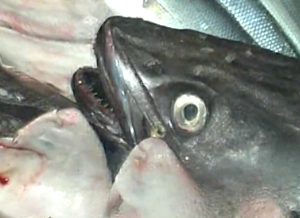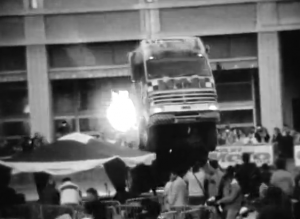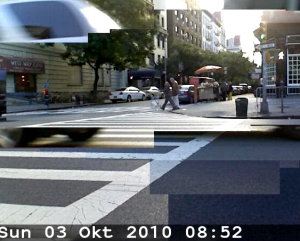As part of the Finnish Institute‘s new publications series, Hanna Harris edited a book about urban/community TV. It is largely based on experiences emerging from an exchange and mini seminar/workshop Harris organised with Tenantspin at FACT/Liverpool and m2hz in Helsinki. The book will be published in early 2012. Harris interviewed Adnan Hadzi for this edition:
Adnan is finalising a practice-based PhD entitled ‘FLOSSTV – Free, Libra, Open Source Software (FLOSS) within participatory ‘TV hacking’ Media and Arts Practices’ at Goldsmiths College, London. His research focuses on the influence of digitalisation and the new forms of media and arts production, as well as the author’s rights in relation to collective authorship. The practical outcome of his research is Deptford.TV, an online database drawing on and documenting the current process of urban change in Deptford, South East London. Adnan is also part of the artist group !Mediengruppe Bitnik. The group’s artistic practice focuses on media systems, mediatized realities and live media feeds which they manipulate and reproduce to give the viewer a novel and refined understanding of their mechanisms. Adnan and his collaborators ask:
How can broadcasting systems be reconfigured into participative media?
How can media systems be used to provide access to closed circuits?
Here we talk to Adnan about communities, power and experimenting with TV.
1. What do you understand by community media? How and by whom is it produced?
I like to refer to the Critical Art Ensemble’s notion of “electronic civil disobedience” (1996). Community is a discriminatory term, a label, used for minority communities; it is too loaded. This leaves out the power you can assert with media. I don’t see the power in community. There is a political dilemma with “community media”: it becomes about power vs. community media, about empowering vs. taking the power away. That’s why I prefer to use the term “participatory media”, although, recently, this term has become loaded too, espcially with the recent discussions around ‘social networks’. You can allow mainstream media to be there too.
2. You have been hacking contemporary TV cultures with Deptford.TV. What kind of media and TV is being created with Deptford.TV?
Deptford TV is research into media and communication. It is practice-based experimentation, not a community media project. It’s about getting lost into collectives. Deptford TV started in 2005 with the notion of urban change. The community media angle was strong in the beginning. We started with a group of MA documentary students at Goldsmiths and began documenting urban change. We did this by creating and developing database filmmaking. Soon, there was a shift to art practice and participatory media through methods such as video sniffing. Deptford.TV serves as an open and collaborative platform for artists and filmmakers to store, share and re-edit the documentation of the urban change of South East London. Deptford TV is hosted by Deckspace – which is like a hack space with subscription fees for members. Deckspace has an open wireless network, hosts servers and experiments with network activities. As it is very difficult to host these activities within the institutional context of universities, one often needs to step out in order to undertake this research. The open and collaborative aspect of the project is of particular importance as it manifests in two ways: a) audiences can become producers by submitting their own footage and b) audiences interact with each other through the database. Deptford TV makes use of licenses such as the Free Art License, the Creative Commons SA-BY license, and the GNU General Public license to allow and enhance this politics of sharing. Deptford.TV is accessible publically but you need to come to the workshops to be allowed into the database and to get to play around with the database and clips. Deptford TV is research into arts production that engages with those who are interested. It aims to develop methods to enable this. The process is similar to the development of free and open source software. It is about thinking around collectives and collaboration. Up until now the focus has been on postproduction methods. There is potential to focus on distribution: immediate file sharing and live TV. Recently we produced Ali Kebab Live on Air. We experimented by broadcasting live CCTV footage from a local kebab shop. The same material, shown in Linz at the 2011 Linux Wochen Linz, was also shown on monitors 200 metres away from the shop in a gallery.
3. Why is what you refer to as participatory media needed?
It’s about reclaiming TV. It’s about decentralising TV in order to offer the next generation of media a less centralised notion of politics. The Internet is becoming more centralised. If TV becomes less centralised, one could argue that, it will be more difficult for those parties interested in centralising the Internet to do so. First, there is the political aim. Reclaiming TV is about the redistribution of wealth. I’m a big fan of sharing wealth – for me, knowledge production signifies wealth. We should have a big redistribution system going on. The digital networks are good starting point for this. In the light of the digital divide, TV can mean access for all. Second, there is a cultural aim. I talk about post-mortem. We are locking culture away. Where is the benefit for society, for future generations? For us being able to philosophise about life and what is important? Marshall McLuhan predicted this, and it hardly materialised, but maybe the time for bottom up TV is now, the time for reclaiming your TV. Nevertheless when looking into McLuhan one should not forget Raymond Williams’ criticism of McLuhan’s techno-deterministic approach to media systems.
4. What are the future platforms and practices of participatory media?
Open wireless networks might have a future. Operating on ‘many to many’ principles, they are more powerful than having a community TV station. We should focus more on use and on small entities that can network each other. Currently however, the community aspect cannot go further because it is not allowed; we are still under a centrally controlled service system. Under the British Digital Economy Act, open networks can potentially become heavily censored. We are witnessing a similar moment everywhere in Europe.
5. What actions should be taken now?
For Deptford TV, it has become more and more a reflection about culture. The open wireless network needs to be defended. If we are banned from intellectual properties of the past, future generations will not have our culture. This is also why I am interested in database filmmaking. We need to move back to thinking about distribution. Using the model of Deptford TV, I could imagine to set up something like Stratford TV based on a wireless network around Stratford and Hackney in East London and have the tenants “ranting” about the Olympics. Wouldn’t that be cool!








